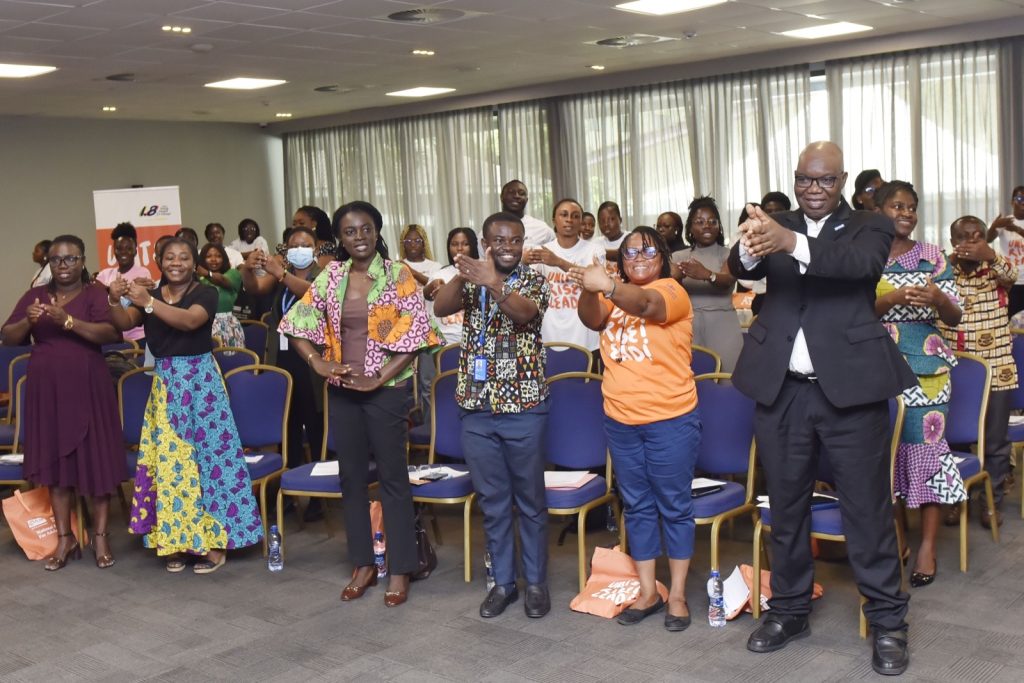By Eunice Hilda A. Mensah
Accra, April 13, GNA – Mr Constant Tchona, the Country Director, Plan International Ghana, has called on government to join forces with relevant institutions to confront the many challenges adolescents face.
In Ghana, while significant strides had been made in improving adolescent health and education, he said adolescents faced a myriad of obstacles such as child marriage and teenage pregnancy, poverty, unemployment and violence, on their journey to adulthood.
Meanwhile, he said the voices of adolescents remained unheard, with their needs unmet, and their potential untapped.
Mr Tchona made the call at a “National Advocacy Forum for Adolescents” organised by Plan International Ghana in Accra on the theme: “What Young People Want.”
The forum was a call for meaningful engagement between adolescents and policy makers, to ensure commitment mobilization, and accountability.
It was also an opportunity for decision-makers to listen, learn, and act upon the priorities identified by the adolescent population.

The Country Director said: “This is why a forum like this stands as a beacon of hope, a platform where the dreams and aspirations of our youth take centre stage. We gather here not only to listen but to truly hear and understand what young people want for their well-being, their future, and their country.”
By leveraging their expertise, networks, and influence, Mr Tchona said Plan sought to ensure that government commitments translated into concrete actions that positively impacted the lives of adolescents across the country.
Dr Bernard Okoe-Boye, the Minister Designate of Health, in a speech read on his behalf, said adolescence was a critical period of development, and the experiences adolescents had at that period could have a profound impact on their health and well-being throughout their lives.
He said government’s comprehensive commitment to adolescent well-being, spanning finance, programme, and service delivery, signed by the Minister of Health in 2023 and showcased at the 78th UN General Assembly, served as a testament to its unwavering dedication to championing the rights and health of adolescents.
“It signifies our collective acknowledgment of the multifaceted challenges confronting our young people, including child marriage, teenage pregnancy, HIV, Gender-based violence, substance abuse, and poverty,” he noted.
Dr Okoe-Boye said government’s commitment to adolescent well-being resonated with the West and Central African Commitment, which underscored the imperative of implementing comprehensive education and information programmes, enhancing sexual and reproductive health services, and addressing gender inequalities and sexual and gender-based violence.
“These principles align seamlessly with our vision for adolescent well-being in Ghana, and we stand ready to translate them into actionable initiatives. As the Ministry of Health, we pledge to harness the resources and expertise of our ministry to support this noble cause fully,” he added.
Dr Frank Lule, the Officer-In-Charge, WHO Ghana, in a speech read on his behalf, said through collaborative initiatives with the Ministry of Health and the Ghana Health Service, such as conducting training needs assessments to building capacities of service providers, WHO had played a pivotal role in ensuring the delivery of quality adolescent and youth-friendly health services.
“Notably, our partnership with the Ghana Health Service has led to the piloting and scaling of a digital web1 based platform for monitoring the quality of adolescent and youth-friendly health services in 43 senior high schools.
“This innovative platform has empowered over 30,000 students to provide feedback on their experiences with service provision, thereby shaping the future of adolescent health care delivery in Ghana,” he said.
Dr Lule admonished them to remember that their ultimate goal was to translate the discussions at the forum into tangible actions, as they deliberated on the priorities and aspirations of young people.
“By the end of this conference, it is imperative that we establish robust accountability mechanisms to track the implementation of our commitments. Only through concerted efforts and unwavering dedication can we realize the vision of sustainable development goals related to adolescent health and universal health care,” he added.
The forum was also attended by representatives of the Ministries of Health, Gender, Children and Social Protection and Education, Ghana Health Service, Ghana Education Service, UNESCO, UNICEF, UNFPA, and the National Youth Authority.
Students participated from the Labone Senior High School, Accra Girls Senior High, Tema School of the Death and Corpus Christi Senior High Schools, Tema all in the Greater Accra Region.
From the Central Region, students from the Mfanteman Girls Senior High School, St. Augustine’s Senior High School, Cape Coast School of the Death, Assin Manso Senior High School, Methodist High School, Assin North Senior High School and Wesley Girls Senior High school took part in the forum.
The rest were the Aburi Girls Senior High School, Krobo Girls Senior High School, Ofori Panyin Senior High School and Methodist Girls Senior High School, Mamfe in the Eastern Region.
Established in Ghana in 1992, Plan International has been at the forefront of championing children’s rights and equality for girls for over three decades and worldwide, the nongovernmental organisation operates in over 80 countries, working tirelessly to promote sustainable development and ensuring that every child, regardless of gender or background, can reach their full potentials.
GNA